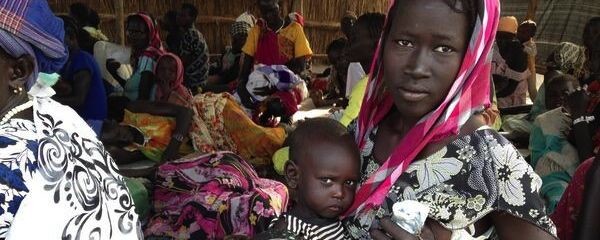Doctors Without Borders (MSF) has treated more than 500 children with measles in the border region between Ethiopia and South Sudan, after the infectious disease spread among refugees who fled from violence and hunger in South Sudan.
According to the medical organization, 47 of the 500 children treated for measles “required intensive care and hospitalization.” The disease is highly infectious and often results in fever, cough and a spot-like rash.
The disease has spread among the estimated 80,000 refugees who fled from Jonglei, Upper Nile, and Unity States into Ethiopia in recent months. At least 1,000 new refugees continue to arrive in Ethiopia daily from these regions. Some of them have walked for weeks in order to reach Ethiopia.
MSF has set up mobile clinics at the border in Tiergol and Pagak, outpatient services and a 65-bed inpatient facility in Letchuor, a camp with 40,000 people, and a 75-bed inpatient facility in Itang, close to Kule camp.
The aid organization says many refugees are suffering from respiratory infections, diarrhea and malaria. These diseases are sometimes fatal.
“We estimate that the mortality rate in children under five remains above emergency levels in Letchuor camp, due largely to high rates of malnutrition and measles,” said Antoine Foucher, MSF’s head of mission in Ethiopia.
“While the provision of assistance has improved, it is hardly keeping up with the continued influx of refugees. The current response is running behind the needs, and it is critical to boost the response to improve health conditions ahead of the rainy season,” he said.
MSF teams have so far conducted about 9,000 medical consultations, admitted 160 patients, and provided intensive nutrition care to 130 children.




